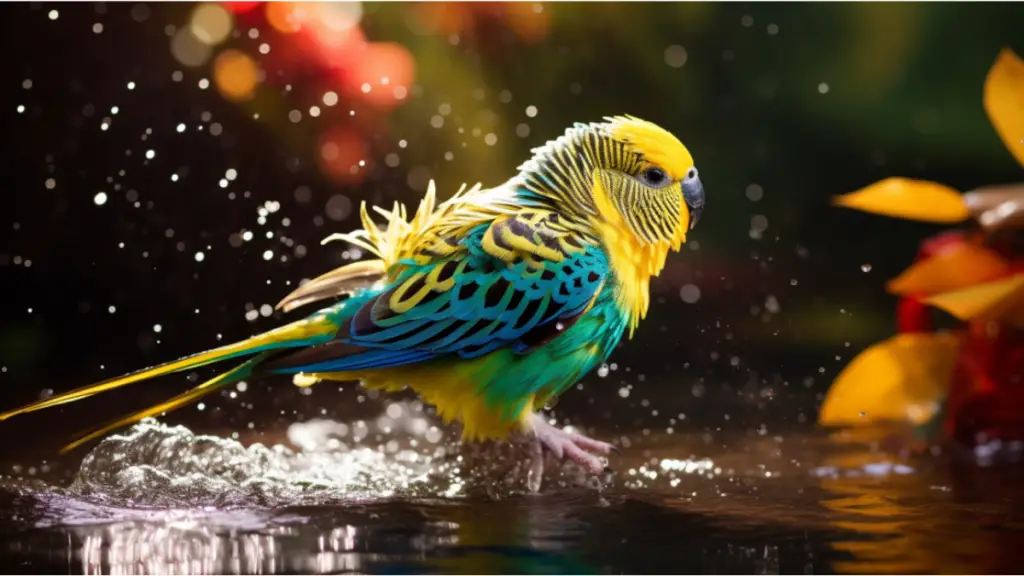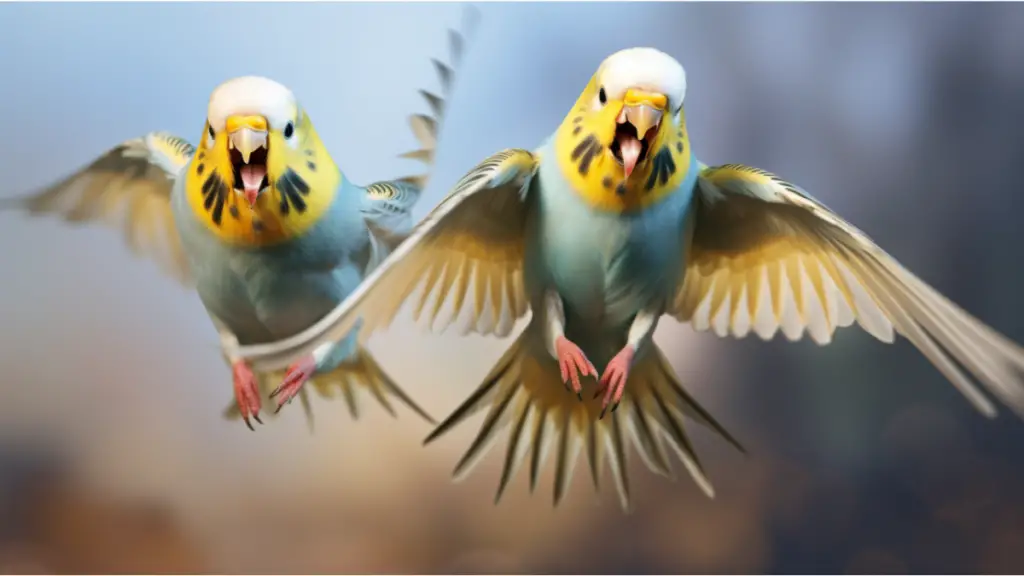Are you struggling with budgie aggression? Do you want to understand the causes, find effective cures, and gain valuable insights into their behavior? Look no further! This article will explore ‘Budgie Aggression: Causes, Cures, and Behavioral Insights’ to help you create a harmonious environment for your feathered friends.
Aggression in budgies can stem from various factors, such as defending territory, overcrowding, or incompatible pairs. During mating season, females may become aggressive to protect their young, while males can exhibit territorial behavior over their mates.
Overcrowding in cages can lead to social and behavioral problems, triggering territorial and aggressive responses. Jealousy, changes in their environment, and the introduction of new individuals can also provoke aggression.
Understanding the causes is essential, but we won’t stop there! We will delve into effective cures and strategies to address budgie aggression. Monitoring their behavior and making necessary adjustments can create a peaceful and happy environment for your budgies.
So, let’s dive in and discover the causes, cures, and behavioral insights to help you serve your budgies better!
- Key Takeaways
- Causes of Aggression
- Curing Aggression
- Understanding Behavior
- Frequently Asked Questions
- Can a lack of socialization cause budgie aggression?
- How can I prevent budgies from becoming aggressive toward each other during the mating season?
- Do male and female budgies exhibit different forms of aggression?
- Can budgies become aggressive if their cage is too small?
- Are there any warning signs that indicate a budgie may become aggressive toward humans?
Key Takeaways
- Budgies can become aggressive due to territoriality, overcrowding, and incompatible cage mates.
- Aggression can be triggered by hormonal changes during mating season, leading to shorter tempers.
- Jealousy and introducing new budgies or individuals can also provoke aggression in budgies.
- Aggressive behaviors in budgies include biting, chasing, hissing, food guarding, and displaying threatening body language.
Causes of Aggression
If your budgie becomes aggressive, it could be due to various reasons such as defending their territory, overcrowding, or not getting along with other budgies. Understanding aggression in budgies is important for managing their territorial behavior.
Budgies can become aggressive when they feel their space is invaded or threatened by other budgies. Overcrowding in their cage can also lead to social and behavioral problems, causing them to become territorial and aggressive.
To manage aggression, it’s crucial to ensure the cage is large enough for them to have their own space and provide multiple food and water dishes. Spending more time with your budgies can also help prevent jealousy and promote a positive environment.
If two budgies don’t get along, they may need to be separated to avoid further conflict.

Curing Aggression
You can try implementing various techniques and strategies to resolve the aggression issue in budgies.
Aggression management is crucial in curbing this behavior. One effective method is positive reinforcement training. You can encourage your budgie to adopt more desirable habits by rewarding good behavior with treats or praise.
Additionally, providing mental and physical stimulation through toys and interactive activities can help redirect their aggressive tendencies. Maintaining a peaceful and calm environment for your budgie is important, as stress can contribute to aggression.
Regular socialization and spending quality time with your feathered friend can also help prevent jealousy and territorial behavior. Remember, consistency and patience are key to curing aggression in budgies.
You can help your budgie become a well-behaved and happy companion with the right approach and dedication.
Understanding Behavior
By understanding your budgie’s behavior, you can better address any issues and ensure a harmonious relationship. Understanding budgie behavior is crucial in identifying signs of aggression.
Budgies may display aggression through biting, chasing, hissing, and body language. Biting allows budgies to show dominance and ward off others, while persistent chasing can cause stress and potential injury. Hissing is a warning sign to stay away. Budgies may also squabble over food and water, but deliberate guarding is problematic.
During aggression, budgies may raise their wings to appear more threatening. It’s important to note that budgies may peck each other’s feathers as part of normal grooming behavior. However, if aggression becomes excessive or leads to harm, it’s necessary to intervene and address the root cause.
Monitoring your budgie’s behavior over a few days can help determine the cause of aggression and take appropriate action.

